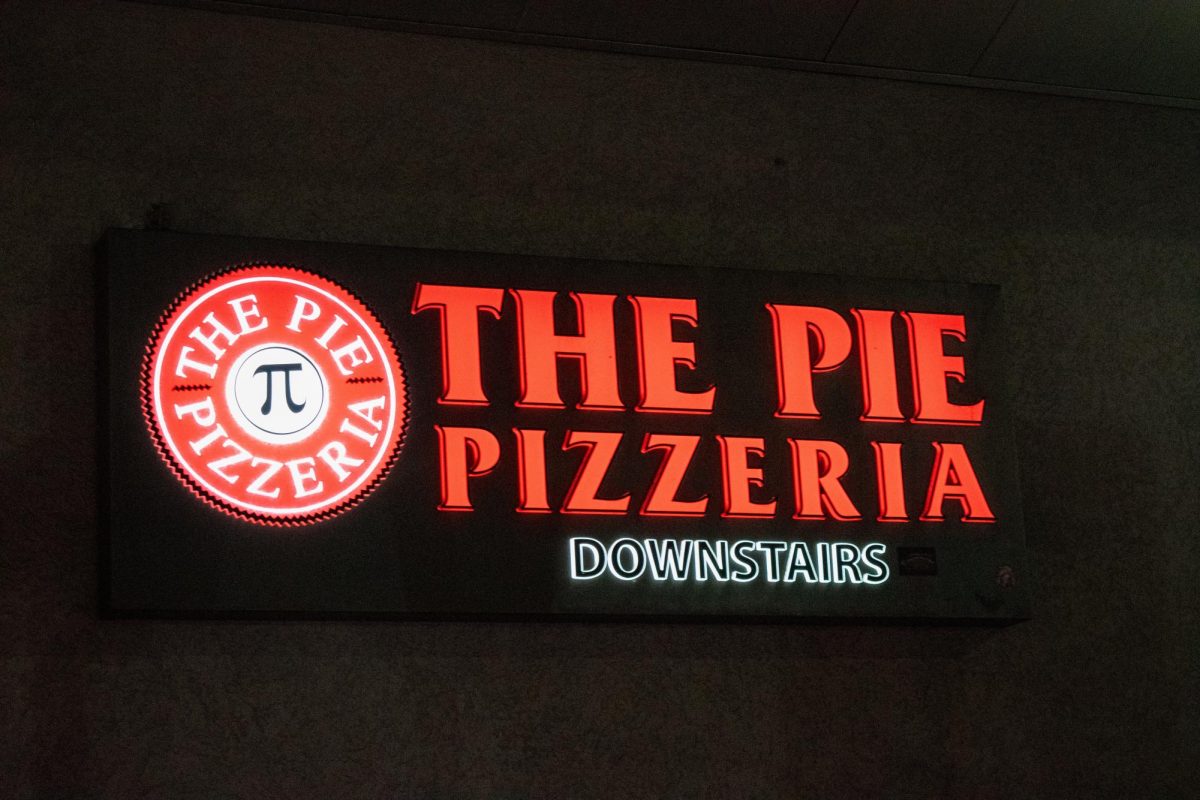Gaymer Night: Representation, Support and Inclusivity
October 1, 2019
October is LGBT History Month, and we are heading into Pride Week here at the University of Utah. To kick everything off, the LGBT Resource Center will be hosting “Gaymer Night” in the Entertainment Arts and Engineering Building on Sept. 30.
Now, I’m particularly excited for the evening and you should be as well — but maybe you don’t play games. Maybe you aren’t LGBTQ+ and thus don’t see the point in attending. Maybe you don’t want to be told to do something by some college student writing an article for the school newspaper, and that’s fine, go be obstinate elsewhere. But this event is incredibly important for numerous reasons, so please give me five minutes to explain why.
Representation
We begin in 2015. The video game industry celebrated a “turning point” in terms of representation and diversity when games like “Horizon Zero Dawn,” “ReCore,” “Dishonored 2,” “Assassin’s Creed: Syndicate” and even “FIFA” showed off powerful female protagonists. Many believed we were entering into a new era of more inclusive video games. Unfortunately, four years later, we have yet to see a significant shift in the gaming industry, according to a report from Feminist Frequency. Only 5% of games at E3 2019 featured a female protagonist — compared with the 21% that featured a man — which is actually down from that 9% peak in 2015.
The report does show a consistent increase in games that allow the player to choose between a female and male character — up to 66 % of E3’s 2019 lineup. Progress is happening, it just isn’t as rapid and forceful as many hoped. However, as the representation of women in games slowly climbs, it seems we’ll be waiting even longer for LGBTQ+ representation. Androgynous protagonists made up only 2% of 2019’s games, which is still up from none in 2015.
This is a problem for students like Luka. Luka studies game design here at the U and identifies as genderqueer and queer in their sexuality. For them — and for all those young members of the LGBTQ+ community — there is hardly any representation in the games they play. Worse, many people are actively fighting to keep it that way.
When the game studio CD Projekt Red announced that “Cyberpunk 2077” would offer character customization through body type, voice and other attributes rather than the traditional male and female options, some very vocal people took to social media to bash the game for pushing a progressive agenda. Something quite similar happened when developer Naughty Dog’s trailer for “The Last of Us 2” showed the character Ellie kissing a girl.
Gamers and Gaymers
Outrage has become a staple of society in recent years, but the sentiments that continue to emerge when a game pushes for better representation reflect something deeper about gaming culture. “We typically see the ideal of the gamer as a white, cis-gendered guy,” said Luka. That description also tracks all too well in the game industry when every protagonist looks the same: white, male and masculine.
Maybe the lack of diversity in games birthed the stereotype of the gamer, or maybe the stereotype led to that certain look in video game protagonists. Regardless, gamers are not all white, male and heterosexual, and video games need to reflect that.
The stereotype of the gamer has seeped into online communities as well. “Unfortunately it can kind of breed a culture that is fairly exclusive toward queer folk in general,” said Luka. “You feel as though you are excluded from certain spaces, or that you have to use this barrier that you have by being on a game.” Many online game spaces have become exclusive or even hostile to these groups, to the point that Luka and others would rather conceal their identity and pass as “just another gamer” rather than deal with the confrontation.
Games do not adequately represent gaymers — a portmanteau that has become the umbrella term for LGBTQ+ gamers — and many online lobbies can even be hostile to them. However, a major appeal of video games is a potential for escapism, one arguably unrivaled by other forms of popular media. With a quality game, you can completely forget about the world outside and immerse yourself in fiction. Add to that the anonymity that online communities provide and these same LGBTQ+ groups can often find comfort in video games, especially when faced with animosity in day-to-day life. “You still are affected by the fact that other folks are going around throwing slurs at each other,” said Luka. “[But] it’s kind of like you can filter yourself in ways that you don’t necessarily get to do in real life.”
Fight for Change Tonight
This is why events like Gaymer Night are so vital for the LGBTQ+ community. It shows support from the gaming community that is lacking elsewhere and is evidence to gaymers that they have a place in video games. For people who do not identify as LGBTQ+, like me, tonight is about extending this support and opening our eyes to the reality that gamers are not all the same. For the gaming community as a whole, tonight is about pushing forward towards acceptance and representation in upcoming games.
Lenore Gilbert — CEO of Rainbow Studios and LGBTQ+ activist — will be at Gaymer Night to speak about being a non-binary trans person within the video game industry. The theme for the night and for the rest of Pride Week is “Queeroes: Reclaiming Hero.” “We need more queer developers who are making games,” said Luka. “No matter what, I have a very queer perspective on life that maybe other people don’t have, and it’s going to be always biased and skewed in a way that inherently I’m making queer games.”












